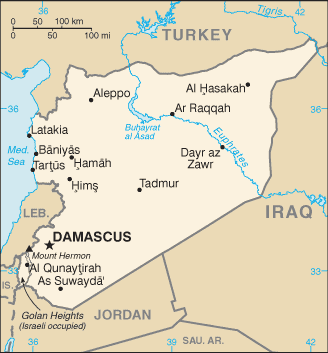The Syrian rebels are on the brink of outright military defeat in Aleppo, and despite a good chunk of them being al-Qaeda fighters, the US has branded them so heavily as “moderate” rebels that the loss is adding to the sense that the rebellion as such as a lost cause.
 While ISIS still has substantial territory, al-Qaeda and friends hold a shrinking amount of territory, and that territory is less and less relevant. It appears the factions are headed for the status of rural-based insurgency, but Saudi Arabia and their allies are expected to keep arming them.
While ISIS still has substantial territory, al-Qaeda and friends hold a shrinking amount of territory, and that territory is less and less relevant. It appears the factions are headed for the status of rural-based insurgency, but Saudi Arabia and their allies are expected to keep arming them.
Saudi Arabia, Qatar, and even Turkey have invested a lot of money in backing regime change in Syria, and even if regime change is out of reach, they don’t appear to see an alternative but to double down and keep the fighting going, in whatever form they can muster.
That’s less true of the US, however, with President-elect Donald Trump expected to shift away from arming the rebels outright, and focus on fighting against ISIS, even potentially coordinating with Russia in that fight. The Saudis aren’t going to go with them, however.
The Stop Arming Terrorists Act of Reps. Tulsi Gabbard (D – HI) and Dana Rohrabacher (R – CA) could cement that further as explicit US policy, formally banning US government funding for al-Qaeda, ISIS, or any of their allies. Since the Saudis aren’t going to stop such funding, the bill would also aim to limit US government support for them as well.


